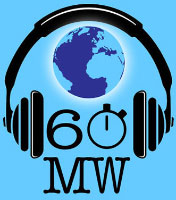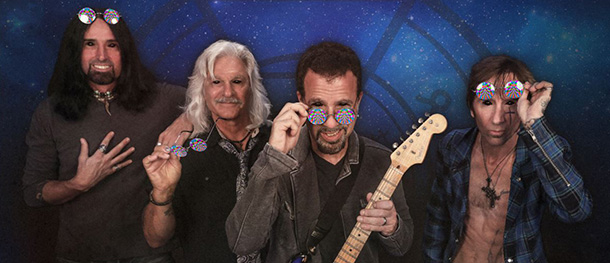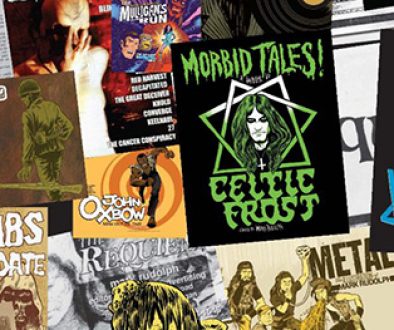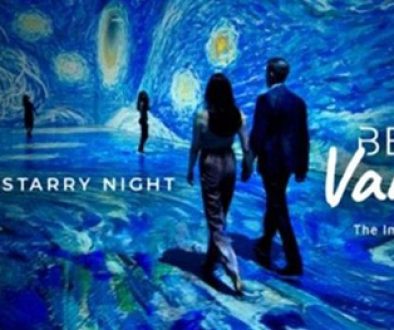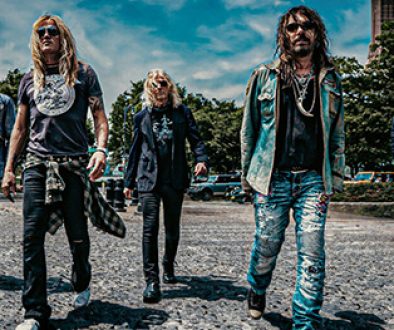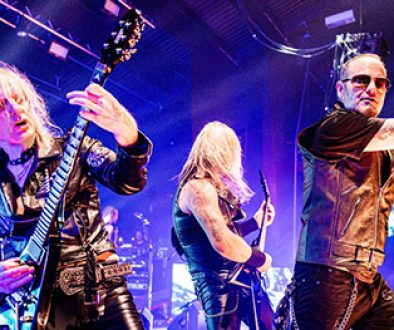New track from The Apocalypse Blues Revue
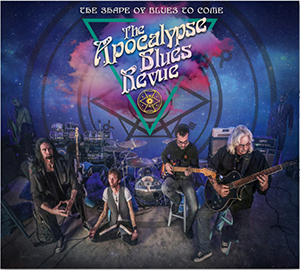 The Apocalypse Blues Revue are back with a new track from their upcoming album, The Shape Of Blues To Come, out on July 20th 2018 via Provogue/Mascot Label Group.
The Apocalypse Blues Revue are back with a new track from their upcoming album, The Shape Of Blues To Come, out on July 20th 2018 via Provogue/Mascot Label Group.
Following 2016s self-titled debut, Godsmack’s Shannon Larkin (Drums) and Tony Rombola (Guitar) return with some more bone-shaking blues with Brian Carpenter (Bass) and the shamanistic frontman Ray “Rafer John” Cerbone.
Here’s what drummer Shannon Larkin has to say about the new track:
“Lyrically, the idea for Nobody Rides For Free was written when we saw a hitchhiker on our first tour (a rare sighting in this day and age), and we started reminiscing about the days when we would hitchhike back in the day without a second thought. The only reason to hitchhike was because you didn’t have a car, so most folks were doing out of necessity, and back then it was the old unspoken rule that some kind of payment would be expected, hence the saying “ass, cash, or grass”.
Musically I wanted to emulate the Chicago blues upbeat and seamlessly drop into a Texas shuffle, and showcase some of Tony’s jazzy blues licks, as well as a nod to Pink Floyd in the front end of the lead section. In the end, it came together smoothly and is one of the most fun songs to perform live.”
Shannon Larkin discovered Ray Cerbone at a biker bar. The singer had no idea that he was speaking to the drummer from Godsmack, it was just a couple of guys hanging out. “It wasn’t a recruitment at all,” Larkin says. Just two guys who liked to ride, and enjoy music. “It wasn’t like I was a guy in a big band, and he was star struck at all. I went over to Ray’s house with my wife to have dinner, and I happened to see his guitar sitting in the corner. I didn’t know what he did, so I asked him to play a song, and I really loved his voice.”
Grizzled “Rafer John” may be no spring chicken, but the truth is that this is his first band, though he has for years worked as an acoustic blues troubadour. He picks up the story, “Next thing you know, Shannon calls and says that he and Tony are down the road in a recording studio working on a blues song, and they needed someone to sing it. I said, ‘Yeah, I know a few guys who could sing that for you, and he said, ‘no, I want you to sing it! I got in there, sang that song, and the rest is history.”
This is more than a side project, “We’re very excited about this second record. I’ve never seen four wills join so strongly with one intent as I have in this band. That’s something special,” affirms Larkin.
Sonically, The Shape Of Blues To Come covers a lot of ground, from the traditional blues changes of “Sincere” to the more cerebral textures found on the Floydian “What A Way To Go” with Rombolo’s evocative late night Strat tones, Larkin’s soft, musical touch on the drums, sweet background choirs, and Cerbone’s sung-spoken recitation of “What a way to go, when the wind’s never at your back.” “Open Spaces”, which opens the album with a nod to Jimi’s blues, then gradually ups the ante as the band’s rock blood begins to boil and cast about with heavily flanged guitars and vocals is an ideal way to get a panoramic view of what is to come. The beauty lies in the fact that this band has been six years in the making, and while the album lies rooted in very traditional blues structures and sounds, Rombola, Larkin, and Carpenter’s rock roots do shine through. The album’s closing number, “Noumenal Blues” finds Cerbone duet with Nancy Koerner, whose silky tones match Ray’s earthy baritone alongside Carpenter’s languidly loping bass line and some fingerpicked acoustic guitar before Larkin, Carpenter, and Rombola put the record to sleep with a bit of unabashed rock.
There is a healthy dose of psychedelia that infuses the record, filtered through the blues of Jimi Hendrix, David Gilmour, and Billy F. Gibbons, and guitarist Tony Rombola runs the gamut from earthy comping to explosive shards of metallic but no less bluesy slide guitar on “We Are One.” Rombola’s riffing, writing, and soloing is a beautiful blend of chops and taste. This is a great guitar record, and Rombola displays a lifetime of woodshedding, listening, learning, and his playing is a thrill from beginning to end. Another important piece of the puzzle here is the rhythm section of Larkin and bassist Brian Carpenter—Carpenter’s huge, gritty tones are a perfect complement to the dynamic drum work, and together they have the feel and sound of a classic blues rock engine room.
Six years in, and it feels like The Apocalypse Blues Revue is just getting started….
